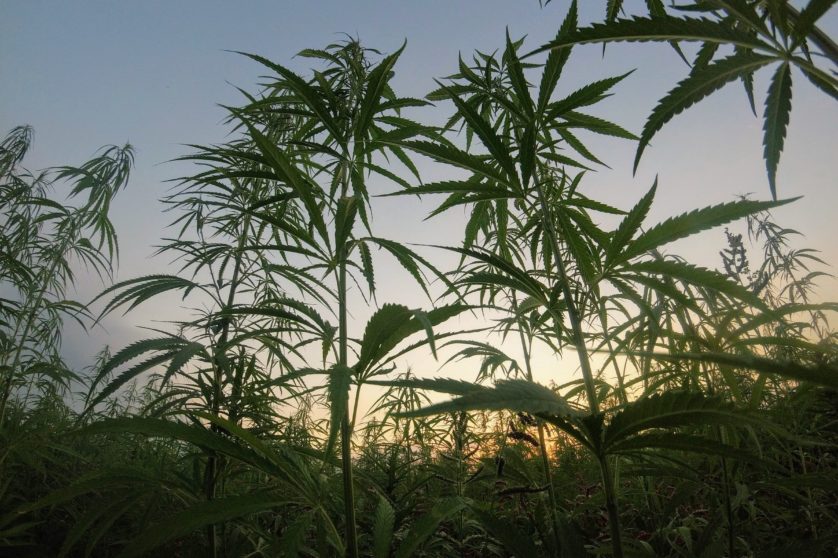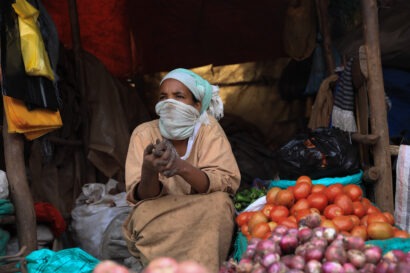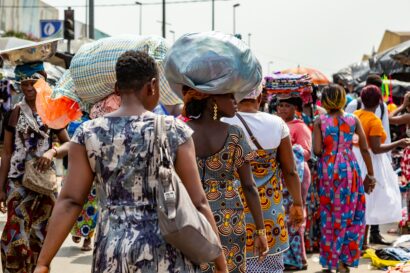In recent years, the legalisation of cannabis – initially for medical use, and increasingly for recreational use – has become a common policy talking point. But can legalised cannabis production become a new revenue source for low and middle-income countries?
Canada and a range of states in the US have made headlines from legalisation initiatives since the early 2010s, with similar legislation now under discussion in countries around the world. This “new” industry has experienced a rapid growth, and its current value is estimated at over USD 13 billion in the US alone. What is frequently forgotten in the context of these legalised industries is that for decades, cannabis production has been a significant part of the agricultural exports of a range of low and middle-income countries (LMICs), such as Morocco, Lebanon, Albania, Colombia, Mexico, Lesotho or Malawi – although cannabis has typically been exported illegally.
And yet, the new legal market has been initially dominated by developed countries. In fact, in 2018, the world’s largest legal exporter of cannabis was the UK, with the US and Canada quickly expanding production.
Consequently, recent years have seen an increasing number of countries previously mainly known as illegal exporters either proceeding with the legalisation of cannabis production and exports (Lesotho, Colombia) or in the process of doing so (Morocco, Mexico). In an expanding global market, it has increasingly been pointed out that the legalisation of cannabis has become an interesting strategy from an employment and industrial policy perspective. As we argue here, it also provides another potential upside for LMIC governments: taxation.
Exploring cannabis taxation in LMICs
Most jurisdictions that legalised cannabis have also begun collecting taxes on its production and sale. In 2018, the state of California collected over USD 350 million in cannabis taxes, while Colorado and Washington were able to collect approximately one percent of their state and local own-source revenue through cannabis taxation. Methods of calculation and collection vary, ranging from percentages of the sales price to taxes depending on the THC potency of the product. So far, most analysis of the potential of cannabis taxation has focused on high income contexts.
However, there are good reasons to suggest that cannabis taxation can have particular advantages for LMIC revenue authorities. The first point is the sheer revenue potential itself.
The potential tax income for LMICs that have historically produced large quantities of cannabis could be substantive, such as in Morocco, which has been estimated to grow over 35,000 metric tons annually. A feasibility study presented by the interior minister of Morocco estimated the potential of net farm income at 115,000 dirhams (roughly 10,000 Euros) per hectare. If we consider that legalisation cuts out the ‘risk premium’ usually charged in an illegal market, there is substantial space for high tax rates.
From a LMIC perspective, the ease of implementation represents another advantage of cannabis taxation. Countries that begun legalising cannabis cultivation, such as Lesotho, Uruguay or Morocco, are building up highly regulated institutional structures, including central marketing boards, cooperative systems and limited export licences.
This setting makes it relatively easier to assess the revenue of different actors in the industry and to extract taxes, which should be further facilitated by the fact that most cannabis production is likely destined for export. Where consumption is also legalised domestically, cannabis taxation neatly fits into an increasingly popular set of ‘sin taxes’, such as levies on alcohol, tobacco or sugar. Their popularity has been grounded in their ability to contribute to parallel public policy goals: raise revenue for public health systems and reduce consumption of dangerous goods, thereby increasing health outcomes.
Key Challenges in Taxing Cannabis
In order to reap the benefits of a growing legal cannabis market, LMICs need to keep a range of key challenges in mind. Some critical issues include the following:
- In an expanding and competitive global legal cannabis market, the legalisation of cannabis production and export is an industrial policy issue. LMIC first movers need to design tax policy that balances domestic revenue interests with the needs of investments across the value chain to keep up with a global market of increasingly highly capitalised actors. While this need might lead some LMICs to consider providing tax incentives to particular actors in the industry, it needs to be carefully considered how these are distributed along the value chain, and under careful consideration of existing tax expenditure on the agricultural sector, as the latter is generally big and the two are likely to intersect.
- Cannabis production is intimately connected with both environmental and social sustainability issues. In areas of more traditional cannabis cultivation, the introduction of new strains of cannabis has put pressures on soil and water reserves. Agricultural communities that have long relied on cannabis cultivation for their livelihoods will not naturally benefit from legalisation – their role in a new market and vis-à-vis more heavily capitalised actors is directly determined by the design of the newly legalised market. Fiscal policy has a critical role to play here, as licence fees and tax rates can represent a significant obstacle for domestic actors, so that revenue authorities might want to concentrate on more profitable and capital-intensive stages of the value chain.
- While the legalisation of cannabis production creates a new legal channel for sale and export, it is a mistake to assume that illegal markets will disappear. Actors who have traditionally benefited from illegal markets, such as smugglers or members of the security forces, might seek opportunities to insert themselves in the legal value chain. At the same time, illegal value chains might persist if they present a more profitable option for producers or exporters, or if producers can be coerced to continue to supply black markets. Both the design of new legal production channels and respective tax policies will need to keep these developments in mind.
A Need for New Research
New policy-oriented research is needed and can support LMICs and revenue authorities in navigating these challenges and make taxing cannabis effective, developmental, and equitable. Given the recent nature of many legalisation processes and the disproportionate focus on the US and Canada, there is currently a scarcity of policy-focused research that speaks to the challenges of LMICs in this context.
New research on cannabis taxation in LMICs can benefit from close cooperation between often disconnected areas of research, from taxation to industrial policy to scholarship on informal and illegal economies. The International Centre for Tax and Development is looking forward to exploring new research areas, questions and partnerships in this rapidly developing field.



